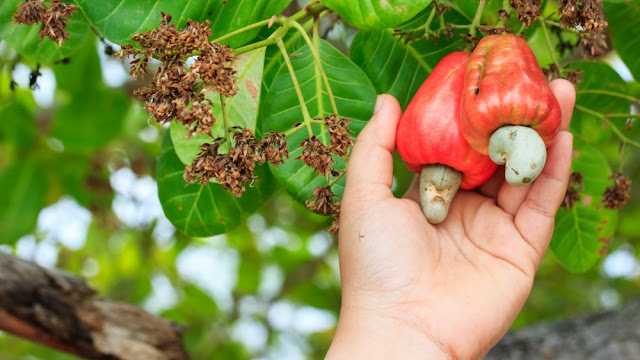Are you all ready for National Cashew Day? Okay, it isn't until November 23, according to the National Day Calendar, but you can never be too prepared, right? Cashews are nutritious, delicious, and everybody (even Oprah) loves them, despite the fact that cashews are not even nuts. Cashew "nuts" are actually a weird little growth that's attached to the fruit of the cashew tree. And they're actually quite dangerous in their natural state. as they're surrounded by a poisonous hull. In order to render them edible once they're harvested, cashews have to undergo an extensive drying and cooking process to eliminate all of the toxins.
While this process naturally bumps up the price, making cashews one of the more expensive types of nuts you can buy, this isn't the worst thing about them. A 2011 Human Rights Watch report revealed that the conditions under which many cashews were produced were inhumane to the extent where they referred to them as "blood cashews." While a 2019 Quartz article said there'd been some improvements in the cashew industry over the past decade, there are still a number of ethical concerns regarding the safety of those who work to bring us this yummy, yet problematic, treat
The 2011 Human Rights Watch report exposed the fact that cashews produced in Vietnam, a major importer, were essentially the product of forced labor from detainees in so-called drug treatment centers. The "patients" in these centers spoke of being beaten, given electrical shocks, locked in "punishment rooms," charged for their room and board, and made to shell at least 5 kilograms of cashews per day (that's 4,800 nuts). Not only was this work beyond monotonous, but it was also extremely uncomfortable and irritating, not only to the skin, but also to the lungs. Gloves and masks were seldom available, and when they were, the workers would be made to purchase them with their own funds.


No comments
Post a Comment